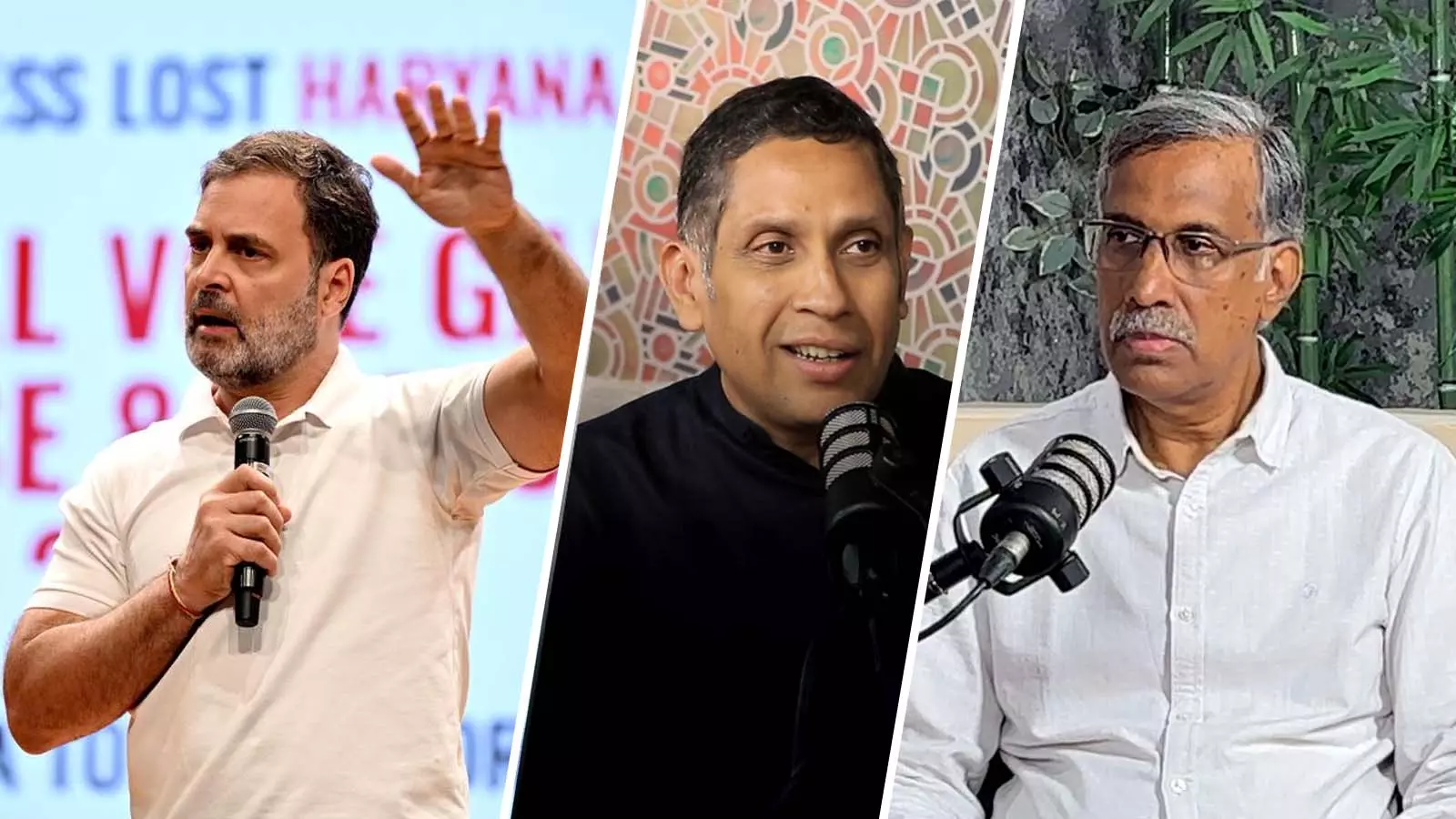
Will Rahul Gandhi's 'vote-chori' charge ring with voters? | Talking Sense With Srini
In this exclusive conversation, Congress leader Praveen Chakravarthy explains how the party carried out its investigation and its political implications on the Bihar elections

Congresss leader Rahul Gandhi’s sharp attack on the Election Commission, accusing it of colluding in large-scale deletions of voters from marginalised groups, has triggered renewed debate over the credibility of India’s electoral process.
On Talking Sense with Srini, Congress’ Praveen Chakravarty elaborated on Rahul's claims, presenting what he described as “forensic evidence” of systematic voter suppression.
'Not stray errors'
Chakravarty said his team had spent six months analysing voter rolls across Karnataka and other states. The exercise, he claimed, revealed patterns that could not be dismissed as routine clean-up of rolls. “Entire pockets of voters, largely from marginalised communities, were struck off in places like Aland in Karnataka. These are not stray errors or clerical corrections. These are patterns, and they disproportionately impact the poor, migrants, and minorities,” he argued.
Also Read: Rahul alleges massive voter deletion scam. Is it possible? Expert explains
'Deletions raise big questions'
Srinivasan set the context by recalling that the EC has long defended deletions as part of its standard process of removing duplicates, deceased voters, or names shifted to other constituencies. Yet, he noted, the scale of deletions cited by Rahul — often running into lakhs in urban constituencies with heavy migrant populations — raises serious questions. “If due process and safeguards were not followed, this cuts at the very heart of electoral credibility,” Srinivasan observed during the discussion.
Chakravarty’s charge is not just about scale but about intent. He pointed to evidence suggesting that verification drives had been outsourced to private agencies with political links. “When the EC allows private players with partisan interests to handle verification, institutional independence is compromised,” he said. According to him, the result is a skewed electorate that weakens the democratic principle of equal participation.
Why are deletions problematic?
He further argued that deletions were not politically neutral. “When names are disproportionately removed from lists of migrant workers, slum dwellers, or minority neighbourhoods, the political impact is obvious. It benefits the ruling party at the expense of those who are already disadvantaged,” Chakravarty said.
If citizens start believing that the playing field is being tilted through invisible deletions, it will erode confidence not just in the EC but in the entire democratic exercise
The Election Commission has termed the latest allegations “baseless and incorrect”. In previous instances too, the EC has dismissed similar complaints as “misleading,” insisting that the revision of electoral rolls is conducted transparently and according to established norms.
Still, the timing and scale of the charges have put the spotlight firmly on the EC at a politically sensitive moment. Questions about whether lakhs of voters — particularly from vulnerable groups — are being unfairly struck off the rolls have the potential to undermine public trust in the institution that is meant to serve as the guardian of India’s democratic process.
For Srinivasan, the controversy underscores a larger concern. Beyond the back-and-forth between parties and the Commission, the core issue, he noted, is the credibility of India’s elections themselves. “If citizens start believing that the playing field is being tilted through invisible deletions, it will erode confidence not just in the EC but in the entire democratic exercise,” he warned.

